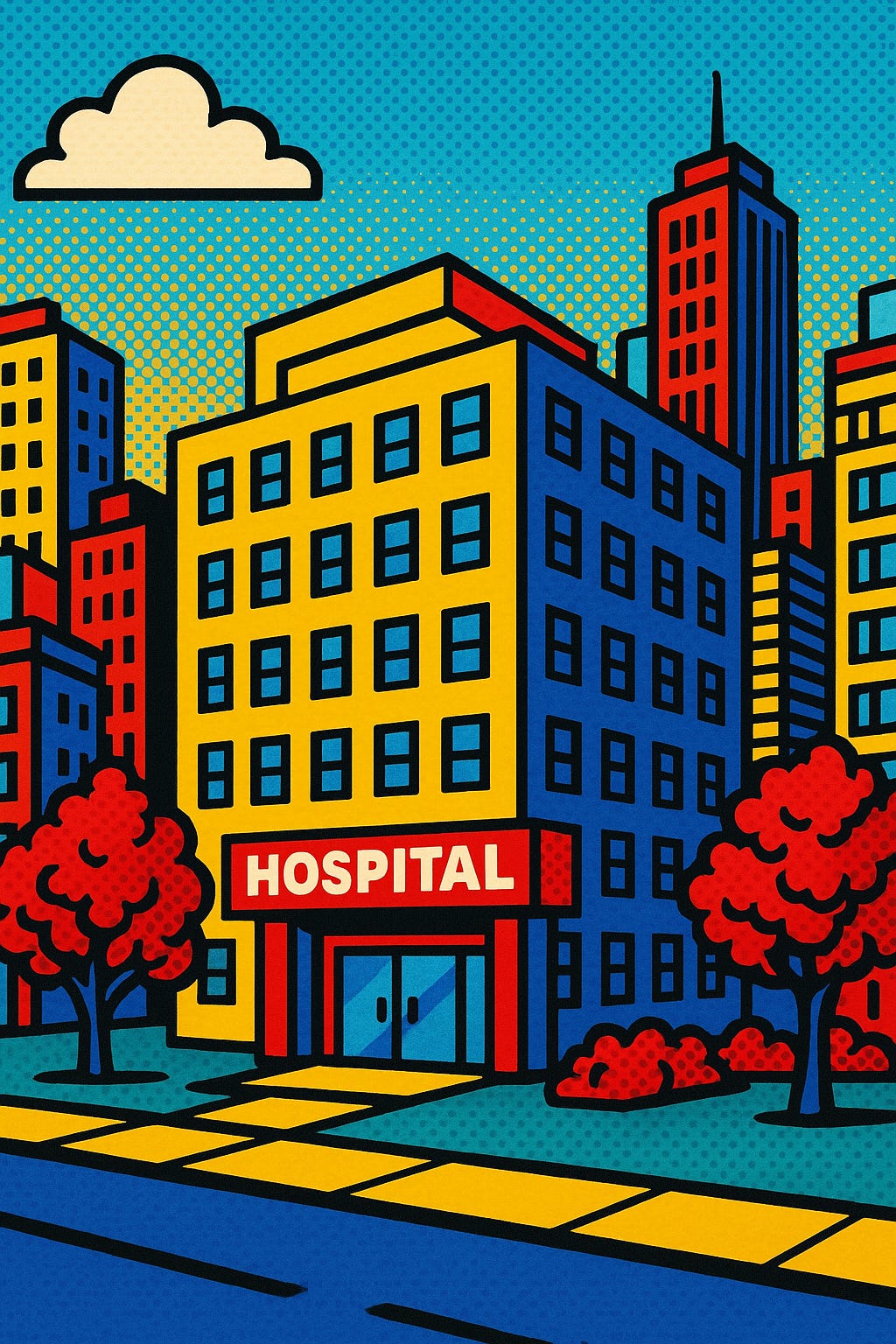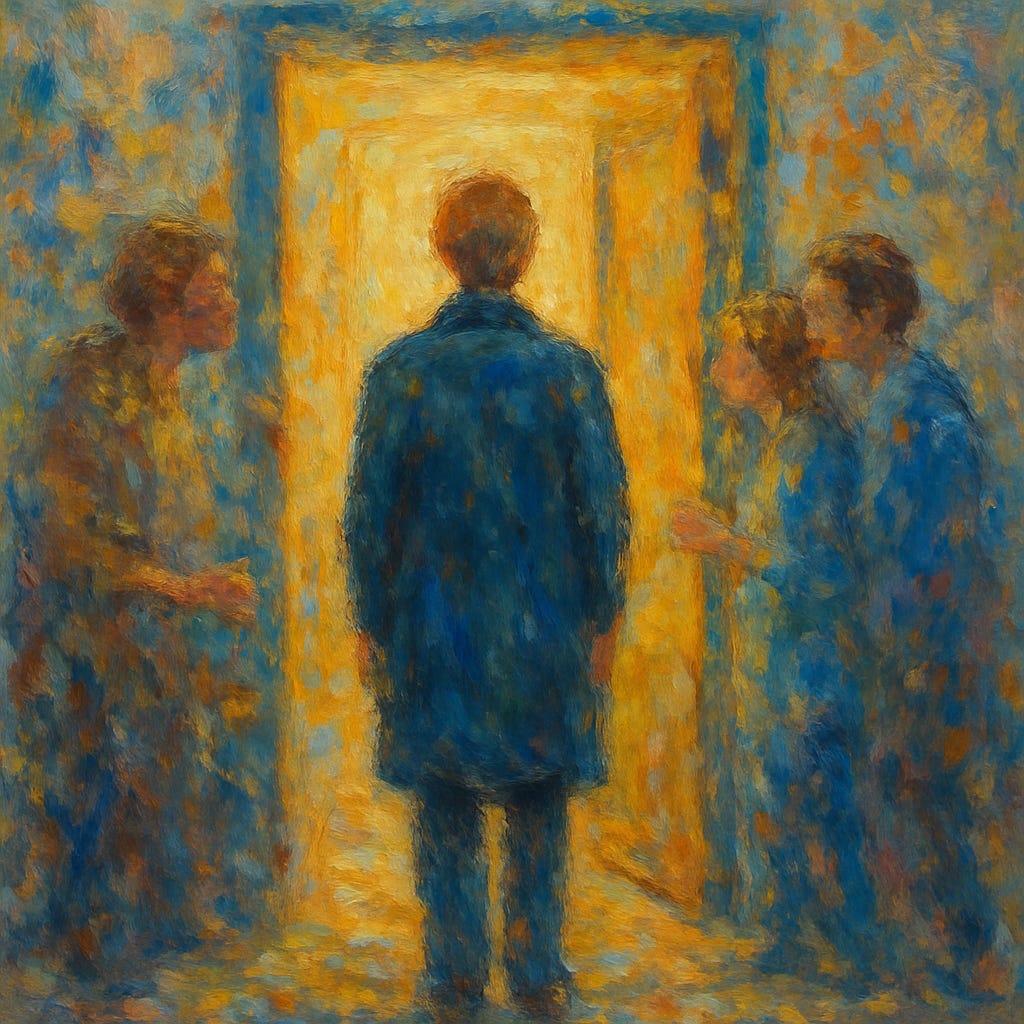I notice patterns. Maybe it’s from training, maybe it’s how I grew up — always watching for small signals that added up to something bigger. Lately, the pattern I’ve been seeing in U.S. mental health policy is unmistakable.
There's a clear shift underway: more states are expanding laws to make it easier to hospitalize people with mental illness against their will. What used to be reserved for the most extreme cases is fast becoming a broader policy tool.
As Axios recently reported, states like California, New York, and Florida are rolling out legislation that lowers the threshold for involuntary commitment. The idea is that by intervening earlier, even when someone is not an immediate danger to themselves or others, the system can prevent tragedies, homelessness, and cycles of incarceration. Those in support of this frame it as compassionate: offering care to people too sick to recognize they need it.
But critics warn that this is a dangerous turn. Writing in The Guardian, Jordyn Jensen describes this trend as "psychiatric incarceration," emphasizing the loss of civil liberties at its core. They argue that expanding involuntary care will not fix underfunded mental health systems, but will instead funnel marginalized people into institutions that often mirror carceral conditions.
At the center of this debate is a fundamental question: Is forced care a help or harm? Proponents point to data showing high rates of untreated mental illness among the homeless and incarcerated. Opponents counter that coercion erodes trust, discourages people from seeking voluntary care, and risks reviving an ugly history of psychiatric abuse.
And somewhere in the middle is the truth.
What’s clear to me though is that this shift isn’t happening in a vacuum. It reflects broader anxieties about public safety, increased rates of homelessness, and the political appeal of "doing something" fast. Yet critics, appropriately so, caution that without massive investment in voluntary, community-based mental health services, more forced hospitalization could become a default, not a last resort.
This shift is also being fueled by national politics. In late 2023, Donald Trump publicly proposed rounding up unhoused people and placing them in government-run psychiatric institutions. As Axios reported, Trump called for building “tent cities” run by doctors and mental health professionals — a throwback to mass institutionalization with a strange dystopian twist. Even if not enacted, this kind of rhetoric gives political cover to harsher state policies and reframes homelessness as a threat, not a crisis of care.
The U.S. has been here before. The mass institutionalization of the 20th century was dismantled for a reason. It was cruel, didn’t work, and for some led to death. As the laws change again, the stakes are high: balancing the urgent need for better mental health care with the equally urgent need to protect individual rights.
We Can't Go Back — So Where Do We Go?
Rather than recycling coercive models - been there done that - federal and state leaders should invest in what we know works: community-based, person-centered care that builds trust and autonomy and has accountability undergirding it. That being said, it seems we are headed back here again, which is cause to at least highlight some policy recommendations to help redirect the conversation:
Fund Peer-Respite Centers Nationwide
Peer-run crisis centers, like the ones described in this NIH study, offer a voluntary, non-clinical alternative to hospitalization. People in crisis can be supported by others with lived experience. These programs have shown a reduction in hospitalization and overall improved outcomes.Scale Up Assisted Outpatient Treatment (AOT) with Oversight
When mandated care is unavoidable, and as it continues to scale, it must be tightly overseen and include meaningful due process. AOT programs should include wraparound services, which include things like housing, therapy, transportation, and medication support. It can’t just be about court orders and compelling people to treatment.Create Ongoing Financial Opportunities to Support Local Mobile Crisis Teams
Ideally congress should fund non-police crisis response teams that include clinicians and peer workers. However, with some of the cuts we are seeing for mental health and crisis in this administration, we may need to look outside the government for creative ways to fund local crisis teams. The goal of these units is to respond to mental health emergencies without relying on law enforcement or emergency rooms.Tie State Mental Health Funding to Voluntary Access Benchmarks
Instead of rewarding states for expanding commitment laws, federal funds could incentivize them to expand voluntary access to care by measuring wait times, provider networks, crisis bed availability, quality of care and outcomes.
The instinct to act in a crisis is human. But fast action without foresight repeats old mistakes. We’ve already tried coercion as mental health policy. It didn’t solve the problem — it just hid it. And in some ways, if not all the ways, we are still paying the price for getting this so wrong.
If we’re serious about improving mental health care, we need to stop reaching for the same blunt instruments that don’t work. This moment calls for creative public policy, deep investment in trust-based care, and a willingness to prioritize dignity alongside treatment taking into account the voices of those who know best, the people with living experience.
We can’t go back, but we can build something better — if we have the imagination to try and the patience to listen.







There is already research on how involuntary commitment for anyone who tells their Therapist they are having suicidal thoughts being a deterent for those seeking help. I had that horrible experience and was lied to about being able to check myself out. They even tried to keep me an extra day because my vitamin D level was low! They offered no counseling while I was in there and I had absolutely no privacy.
with the U.S. shift to right authoritarianism be prepared for psychiatric incarceration to used on people who politically descent. This happens in Russia and Venezuela. Also with less foster care available and the anti-abortion laws-in the coming years we will have children dumped at psych wards (and most likely over-drugged) as a former foster kid and troubled teen industry survivor myself I know how evil some of these places can be.... Utah as a state is the worst offender for the troubled teen industry...